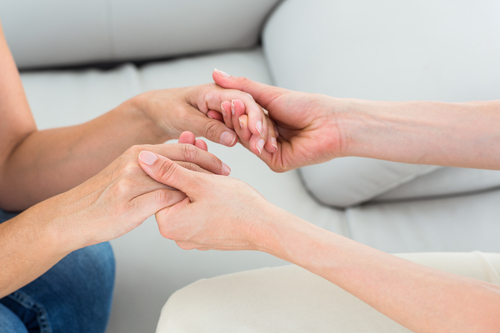
The Necessity of Forming Empathy in Drug and Alcohol Addiction Recovery
Addiction has a way of taking control of an individual’s thoughts and feelings. Things that used to be of high importance are put on the back burner and replaced with the needs that addiction brings. It’s almost like addiction causes an individual to not care about life quite like they used to before their addiction kicked in. Relationships that used to be the cornerstone of the individual’s life deteriorate from resentment and apathy. Although people enroll in drug and alcohol addiction recovery to stop using their drug of choice, treatment is also about much more; it’s about rebuilding formerly damaged relationships. In drug and alcohol addiction recovery, empathy plays a vital role in rebuilding these relationships and helping a recovering addict heal.
What’s Empathy?
Empathy is the ability of an individual to comprehend and share the feelings of another. In other words, it is the capability of being able to picture yourself in someone else’s shoes and understand why they are feeling the way they are. Developing this skill improves compassion, trust, and communication in any relationship.
Developing empathy is imperative for creating and maintaining healthy relationships. Without empathy, caring for others’ feelings is insignificant. It is a struggle to have any opportunities to develop new, healthy relationships when respect for others’ feelings is nonexistent.
The Commonality of Addiction and Lack of Empathy
A common complaint from the families and loved ones of an addict is that their loved one has become apathetic. A lack of empathy causes them to become self-absorbed with their own emotions. An addict will not even care about the feelings of those that are most dear to their heart if it means giving up on chasing their addiction needs. It is not that the addict no longer cares about their loved ones, it is that addiction has taken the highest priority in the individual’s life. When addiction is the number one priority, detachment forms around every other aspect of life. Nothing matters except the drug of choice.
Research shows that empathy develops during drug and alcohol addiction, which means that recovering individuals did not necessarily have a lack of empathy before developing their addiction. In fact, it is a characteristic of alcohol abusers to not be able to recognize their own feelings, let alone the feelings of others. When withdrawal symptoms and cravings are all an alcoholic or drug abuser can think of, it’s hard for them to believe others relate.
The Rewards of Empathy in Drug and Alcohol Addiction Recovery
Although addiction can take away a person’s empathetic tendencies, drug and alcohol addiction recovery may help to redevelop it. An individual can learn and practice empathy through role-playing and skill development techniques. There are many advantages to developing empathy in recovery, some of which being:
- Relationships destroyed by lack of understanding can be repaired.
- When people feel they can relate and be understood by others, healthy relationships flourish.
- Communication in relationships benefits from empathy because there are fewer misunderstandings.
- Less apathy and more respect for humanity and the potential of the human race.
- Compassion can reduce hateful characteristics like racism and bigotry since it allows a person to identify with what others’ emotions.
- Understanding others’ feelings allows for a person to be able to help others. It is a positive way to ensure long-lasting recovery because it can raise self-esteem.
- Helps gain a positive view of life and openness to discovering new things.
How can I Develop Empathy in Drug and Alcohol Addiction Recovery?
Thankfully, empathy is a learned behavior that can be developed through practice. There are a few techniques to use during your time in drug and alcohol addiction recovery that will help you learn to practice understanding and compassion. Some empathy skill development techniques include:
- Using your imagination will help to picture and understand the feelings of others. When someone speaks to you about how they feel, try to picture yourself in their exact situation so that you can find compassion for how they feel.
- When someone speaks to you, try not to form your next response in your mind while they are talking. Instead, utilize active listening so that the individual knows that you are attempting to understand how they feel.
- Avoid forming judgments when others speak. Put your personal faith and credence aside and open up to other’s beliefs; empathy will then come naturally.
- Before you can develop empathy, you must first be aware of oneself. If you can’t recognize your own feelings, you won’t have sympathy with others. Meditate or journal to find different perspectives for understanding your own feelings.
- Realize that you do not have to completely agree with the beliefs or actions of others, but you can still understand and empathize with how they’re feeling.






